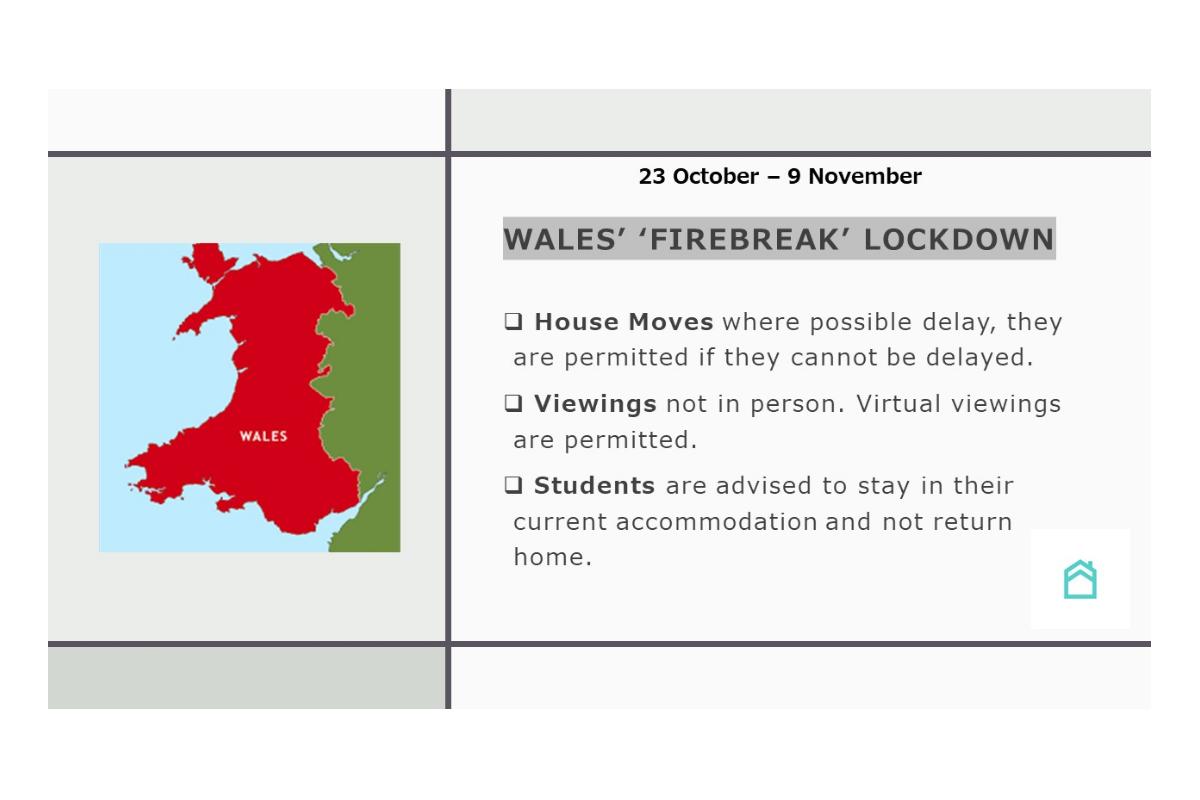
The Welsh Assembly has announced a fortnight-long lockdown across the country to help reduce the number of cases of COVID-19.
This will see all non-essential, non-food businesses, including estate and letting agents, close down for two weeks from 6pm on Friday October 23rd. The restrictions mean that everyone living in Wales will be advised to stay at home except for exercise or essential journeys.
Announcing the measures, First Minister Mark Drakeford said: “Unless we act, the NHS will not be able to look after the increasing number of people who are falling ill due to this deadly virus. This is the shortest we can make it, but it will be sharp and deep.”
Here we explain how this temporary situation will affect the property industry and what help is available for renters in Wales.
Can home moves take place during the circuit-breaker?
Yes, these can still happen if the moving date can’t easily be delayed until November 9th when the restrictions are due to be lifted. For those which are unavoidable, activities associated with a house move such as removals and key handovers can continue provided official guidance about working in other people’s homes is followed.
Can property viewings take place?
No, in-person property viewings are on hold until the end of the lockdown period. Virtual viewings can go ahead as normal.
Can a survey be done at a property?
Surveyors should delay interior surveys on occupied properties until after November 9th. They can however enter vacant properties and complete street-level surveys during the circuit breaker.
Can students return to their family home?
No, students have been advised to stay in their campus accommodation until the end of the lockdown period.
What support is available to tenants struggling to pay rent?
Private tenants in Wales who are in rent arrears are being encouraged to apply for a low-interest government loan to pay off their debt and facilitate future payments.
Designed to reduce the number of potential evictions as the pandemic continues, the Tenancy Saver Loan Scheme is aimed at households whose income has dropped because of lockdown restrictions but who aren’t eligible for housing benefits.
The £8 million scheme is the first of its kind in the UK and is open until March 31st 2021. It offers 1% APR loans, paid directly to landlords or letting agents, to be repaid over a period of up to five years. The aim is to give those tenants an affordable way to cover rent arrears and future payments, as well as providing them access to support and advice on financial management.
Minister for Housing and Local Government, Julie James said: “We recognise the constant pressure that the coronavirus is putting on tenants and landlords. While we have already taken steps to alleviate some of this pressure, such as extending the temporary six-month notice period for eviction … we want to go one step further. That’s why we’re supporting a low interest loan scheme that provides financial assistance for both tenants and their landlords.
“The Tenancy Saver Loan Scheme will directly support tenants who are struggling with their rent due to coronavirus requiring them to stay in their homes, address their debt and avoid eviction, while ensuring landlords receive the rent they are owed.
“We are committed to ensuring no-one is made homeless as a result of the pandemic and this scheme is part of our long term strategy to help people manage their debt, prevent homelessness and where it cannot be prevented ensure it is rare, brief and non-recurrent.”
Keep up to date with the latest industry news at MakeUrMove’s blog.







